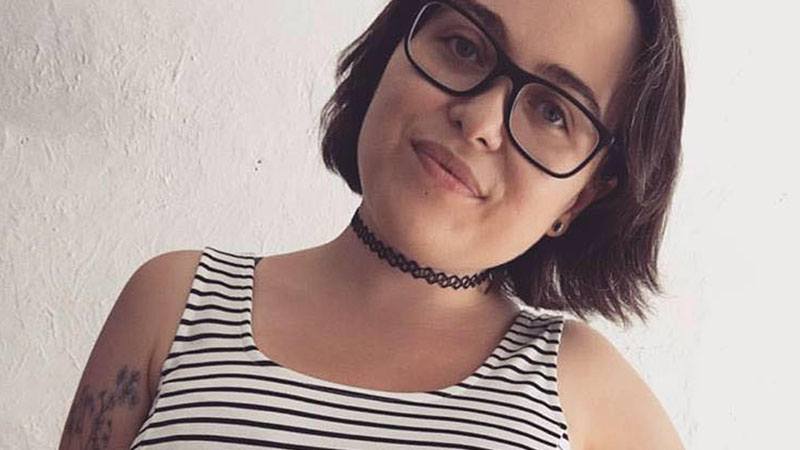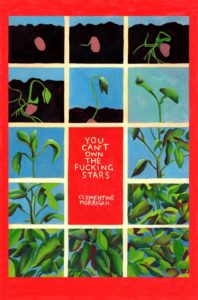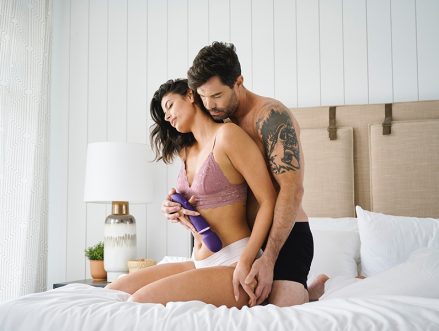Life
World Sexual Health Week Day 3

September 4 was World Sexual Health Day! Conceived by the World Association for Sexual Health (and not be confused with National Orgasm Day, something we can get behind), World Sexual Health Day is about having conversations that promote the importance of sexual health in order to maintain a happy and fulfilling lifestyle. (Of course, if you want to pepper those convos with some electrifying orgasms, you most definitely should.)
Talking about sex—our wants, our needs, and the best practices for optimum health—isn’t always easy (even when we’re speaking with the person we have sex with regularly). To keep the conversation going, we contacted four authorities on sex, for whom we have tremendous respect, and asked them a few questions.
For this instalment, we caught up with Clementine Morrigan, a writer, poet, rebel scholar, teacher and working witch who is also a respected advocate for queer rights. Her highly anticipated new book, You Can’t Own The Fucking Stars, was released last month.
SDTC: What does sexual health mean to you?
CM: Sexual health is a huge, broad concept. On one level, it means freedom from violence, harassment, coercion and discrimination. It means access to information about sexual practices, sexual pleasure, relationship styles, sexual orientations, genders, queer and trans history, reproductive health, safer sex practices, sexually transmitted infections, how to talk about sex, how to practice consent. It means access to condoms, PrEP, emergency contraception, abortion, and anything else we need to make informed choices about our bodies, sexuality and health. It means access to support around c-ptsd and trauma, and healing from sexual trauma. It means communities of care and support, representations of all sorts of bodies as desirable and sexy, safety and support for sex workers, destigmatizing and decriminalizing HIV and other sexually transmitted infections, freedom not to be sexualized, accessible dating cultures. The list really goes on and on. I think there is so much involved in creating the conditions for freedom, pleasure and joy in our sexualities, and it’s important work that we all can take part in.
How do you think we (as individuals) become more mindful of our own personal sexual health?
I think it’s important to get educated on all of these topics. Seek out queer and feminist sources of information. Have conversations with your partners, dates, friends and communities about these things. Come into doctor appointments prepared with information so you know what to ask. Take care of yourself and be gentle with the process of unlearning the shame and healing from the trauma of being taught that our sexualities are bad. Read things written by queers, trans people, sex workers and others who have been on the front lines of movements for sexual liberation.
In your opinion, what’s the best way to gain confidence in our sexuality?
I think the answer to this is different for everyone because everyone’s sexuality is different. I think trauma work and healing shame can be an important foundational piece of this for many people. Connecting with communities and possibly models of people who share similar sexual desires or orientations can open up worlds. Learn about your own pleasure, your own body, your own desire. Come into sexual encounters with a mood of playfulness and learning. Remember there is no right or wrong way to have sex: it’s a process of communication and collaboration. Don’t fuck people who are rude to you or mean to you or disrespect you (I know this is easier said than done, but it is honestly so important to learn this). Learn about consent. Practice talking about sex when sex isn’t currently happening. Learn what kinds of clothes, style and gendered presentations make you feel sexy. Learn what kind of language feels good to describe your body. Spend time exploring your fantasies and desires. Practice saying no.
LOTS to think about. As a takeaway assignment, may we suggest you start a conversation about sexual health (be it with your lover, a friend, or your favoured social media platform), and then carve out some time to make love to yourself. Best homework ever? We think so.
Follow Clementine on Instagram.


